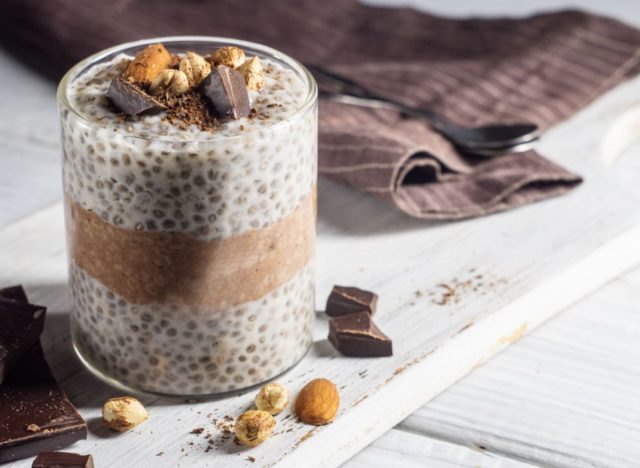This May Be the #1 Best Food to Prevent Breast Cancer, New Study Says — Eat This Not That
When a woman faces cancer in the United States, the most common diagnosis is skin cancer; the second-most common diagnosis is breast cancer, according to the Mayo Clinic (although breast cancer can affect all people regardless of gender). While that’s enough of a reason to regularly have yourself checked for the disease, you may also want to adopt a diet that can help lower the risk of developing breast cancer. According to a new study, that diet should include eating foods that contain n-3 polyunsaturated fatty acids.
In the study, which was recently published in The North American Menopause Society’s journal Menopause, researchers took a look at almost 1,600 people to identify a possible connection between n-3 polyunsaturated fatty acids (or Omega−3 fatty acids, Omega-3 oils, or ω−3 fatty acids) and breast cancer. Those behind the study found that n-3 polyunsaturated fatty acids—in general, as well as those specifically coming from marine sources—were linked to a reduced breast cancer risk.
“This study highlights the effect of lifestyle habits and, specifically, dietary intake of polyunsaturated fatty acids on breast cancer risk. Lifestyle (or diet) is known to contribute to up to one-third of the risk for breast cancer,” said Dr. Chrisandra Shufelt, president of The North American Menopause Society. “Women can affect their risk of developing breast cancer by making dietary changes to include fruits and vegetables, fiber, and whole grains and avoiding high-fat animal and dairy products.”
Mollie Ferguson, RD, LDNand CEO of Seva Functional Wellness, tells Eat This, Not That! “Omega-3s are polyunsaturated fatty acids [which] are characterized by a double bond in their chemical structure.” Ferguson also notes that “N-3 polyunsaturated fatty acids are infamous for a wide range of benefits.”

As for the findings that suggest n-3 polyunsaturated fatty acids reduce the risk of breast cancer, Ferguson says, “Omega-3s are well known for their powerful anti-inflammatory benefits. Lowering inflammation in any capacity helps to lower the risk of certain cancers .”
If you would rather rely on your diet for n-3 polyunsaturated fatty acids, Ferguson suggests foods like flax seeds, chia seeds, walnuts, and “low-mercury fatty SMASH fish,” which includes salmon, mackerel, anchovies, sardines, and herring .
When it comes to making sure you’re getting enough n-3 polyunsaturated fatty acids, Ferguson says, “it’s best to choose food sources first, before reaching for a supplement.” At the same time, “if a supplement is needed, make sure you choose one that is third-party tested and screened for mercury contamination.”
Desiree O
Desirée O is a freelance writer who covers lifestyle, food, and nutrition news among other topics. Read more
